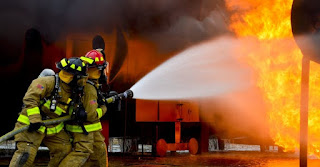Just in Time for the Holidays, another Court Ruling About Snow Liability!
Last winter I wrote about the First District Appellate court decision in Murphy Hylton v. Lieberman Management Services, Inc. Here is that previous post. After that decision, one of the parties petitioned the Illinois Supreme Court to hear the case, and the court granted the petition. In the spirit of the season, the Illinois Supreme Court last week issued its decision, affirming the First District ruling.
My previous post went through the case and potential liability and immunity under the Snow and Ice Removal Act; I will not repeat that all here. But essentially, the ruling (at both courts) finds that the Act, which provides immunity and limits liability for negligent removal of naturally accumulated snow and ice, does NOT apply to limit liability for negligently creating an unnatural condition that causes ice to accumulate. In this case, the plaintiff alleged that a faulty downspout installation caused the ice accumulation. The Court is distinguishing between liability for shoddy shoveling or salting, as opposed to allowing water to pool and ice over on a sidewalk when no snow or ice would otherwise be present. The former is covered by the Act. The latter is not.
The procedural context of the ruling is also important to remember. The original appeal arose when the trial court granted summary judgment to the defense; no trial had yet occurred. Both court opinions start their analysis by appropriately noting this procedural context and the resulting appropriate standard of review, and that at the trial court level the standard for awarding summary judgment is that their must be "no genuine issue of material fact" and that therefore the moving party is entitled to judgment as a matter of law. In other words, even considering the non-moving parties' position favorably, there is no point in having a trial because they cannot win as a matter of law. That is what the trial court ruling meant when it awarded summary judgment to the defense. These appeal rulings mean that it is possible for plaintiff to win, if she proves at trial the case she has alleged. She will get her "day in court" at trial (unless of course the case settles, which is entirely possible).
My previous post went through the case and potential liability and immunity under the Snow and Ice Removal Act; I will not repeat that all here. But essentially, the ruling (at both courts) finds that the Act, which provides immunity and limits liability for negligent removal of naturally accumulated snow and ice, does NOT apply to limit liability for negligently creating an unnatural condition that causes ice to accumulate. In this case, the plaintiff alleged that a faulty downspout installation caused the ice accumulation. The Court is distinguishing between liability for shoddy shoveling or salting, as opposed to allowing water to pool and ice over on a sidewalk when no snow or ice would otherwise be present. The former is covered by the Act. The latter is not.
The procedural context of the ruling is also important to remember. The original appeal arose when the trial court granted summary judgment to the defense; no trial had yet occurred. Both court opinions start their analysis by appropriately noting this procedural context and the resulting appropriate standard of review, and that at the trial court level the standard for awarding summary judgment is that their must be "no genuine issue of material fact" and that therefore the moving party is entitled to judgment as a matter of law. In other words, even considering the non-moving parties' position favorably, there is no point in having a trial because they cannot win as a matter of law. That is what the trial court ruling meant when it awarded summary judgment to the defense. These appeal rulings mean that it is possible for plaintiff to win, if she proves at trial the case she has alleged. She will get her "day in court" at trial (unless of course the case settles, which is entirely possible).
Nate Hinch is an attorney and partner at the law firm of Mueller, Reece & Hinch, LLC. He has offices at 404 N. Hershey Road, Suite C, Bloomington, IL 61704, and 809 Detweiller Drive, Peoria, IL 61615, and can be reached by phone at (309) 827-4055 and email at nhinch@mrh-law.com.


Comments
Post a Comment
Comments are welcome, just keep it clean, respectful to all views, and no spamming or soliciting. Thanks!